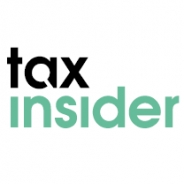
Robert I Fraser looks at a valuable tax relief for property investors, for Tax Insider.
Introduction
Business Premises Renovation Allowance (BPRA) was introduced by Finance Act 2005 and came into effect on 11th April 2007, which is the date from which expenditure must be incurred to qualify. The aim of this Allowance is to give a tax incentive for bringing unused commercial properties back into use.
BPRA provides a 100% Capital Allowance to property owners for qualifying capital expenditure incurred on, or in connection with, the conversion or renovation of a qualifying commercial property.
Qualifying Properties - Conditions
A property qualifies if it:
- Is located in a designated development area;
- Has been unused for at least 12 months before works begin;
- Has not been used for private residential purposes;
- Has been used most recently for the purposes of a trade, profession, or as an office; and
- Is available for letting for use as qualifying business premises once conversion is completed.
The expenditure must be incurred before 11 April 2012 to qualify.
Any BPRA may be clawed back if the building is sold, demolished or ceases to be used for a qualifying business purpose within 7 years of first being used after renovation. For this reason the investment should be viewed as minimum 8 years, allowing one year for the renovations to be completed.
Tax Advantages
Claiming BPRA creates a loss available to set off against income. The allowance can be set off against all income, which includes both earned and unearned income.
The allowance can be used in the tax year of expenditure and in the following year. The taxpayer can elect which year to use first. Since BPRA reduces the highest rate of taxable income first, this will inform the election decision.
Opportunities for Private Investors
Whilst clearly this tax break offers incentives for property owners, a number of schemes have emerged to raise development capital from private capital though Limited Liability Partnerships.
Under these schemes, the individual makes an initial investment geared by a loan secured only on the property, with no liability for the investors’ personal assets.
BPRA is then available on the qualifying expenditure, which individual investors can offset against their total income in the tax year in which the investment is made. This tax relief will be based on their marginal tax rate, which can be at 50%.
Practical Tip
The better schemes usually have a tenant committed to a lease on the property once renovated. The subsequent rental income received from this tenant will then service the loan interest. Investors should note that any surplus rental income received over and above loan repayments will be taxable on the investor, even though this will not be directly received by them since it will be used to reduce the capital on the loan.
The property can be sold 8 years after the initial investment without any repayment of the initial tax relief. The eventual proceeds will be the sale price less any outstanding liabilities. It should be noted that there is no guarantee that the property can be sold at the desired price.
[ In its final report before the 2011 Budget, the Office of Tax Simplification recently recommended that Business Premises Renovation Allowance be abolished because it perceived the Allowance to be overly complex and of limited benefit. Thankfully, this is one of the OTS' recommendations that the government decided not to follow, and in the 2011 Budget it announced instead that BPRA would be extended for a further 5 years. - Ed. ]



Please register or log in to add comments.
There are not comments added